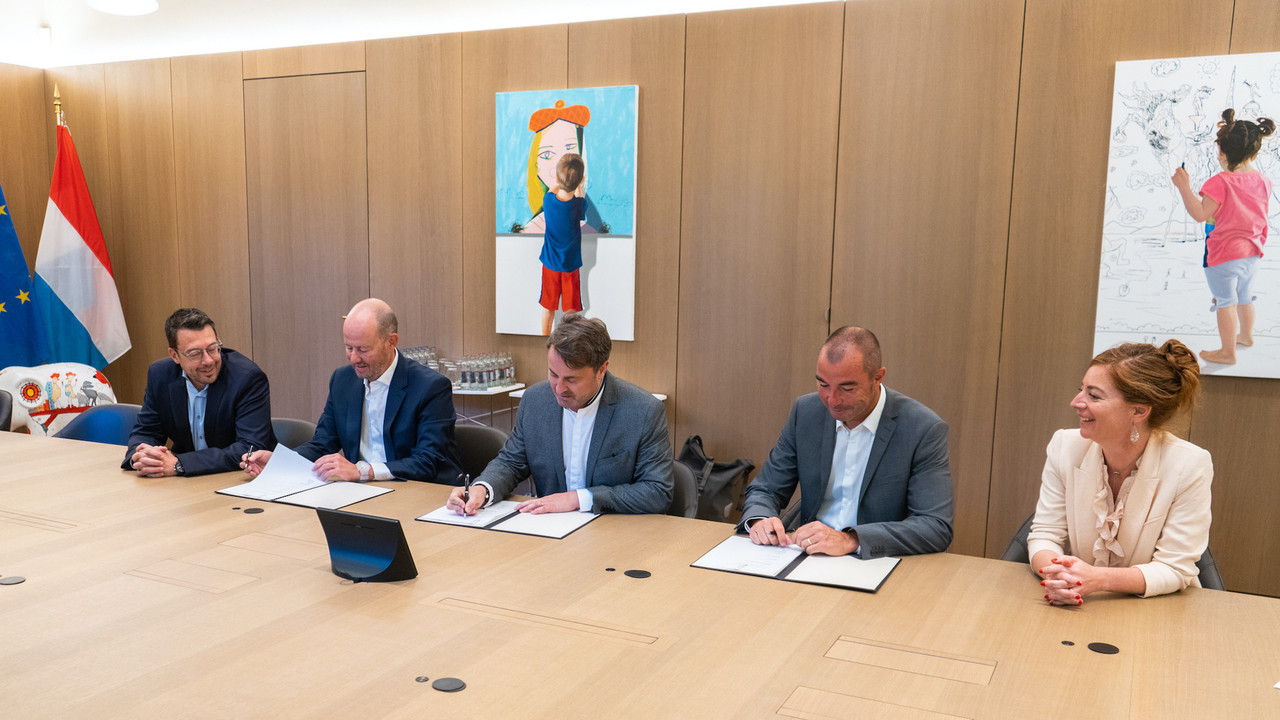Parliament in May had given the go-ahead for the government to between 2024 and 2030 on the television and radio station to pay for its Luxembourgish-language programming, which represents a loss-making activity for the media conglomerate. The funds will cover a deficit of up to €15m per year.
The agreement signed on Tuesday sets out the company’s duties and responsibilities as a public broadcaster in Luxembourg. The grand duchy has no equivalent of public broadcasters such as the BBC in the UK or ARD and ZDF in Germany. Instead, RTL as a private company carries out this mission under a deal with the state.
Under the seven-year contract RTL will for the first time develop advertising-free children’s shows. Together with the University of Luxembourg it will also develop media education programmes.
“It’s a question of information, transparency and quality,” said prime minister Xavier Bettel (DP) about the agreement. Bettel is also Luxembourg’s media minister. The agreement includes ethics rules on quality, accessibility and media pluralism.
The EU-funded Centre for Media Pluralism and Media Freedom in a 2021 report had warned that audiovisual media in Luxembourg is . Reporters Without Borders in its latest , published on 3 May, also warned of media concentration around RTL group.
RTL’s Luxembourgish radio programme reaches nearly 30% of the population, according to the latest results of the Plurimedia study based on a survey of around 3,700 residents aged 15 or over. Fewer than one in five (17.5%) watch its RTL Télé Lëtzebuerg TV channel. The rtl.lu website was the most popular daily news website in the country, reaching 203,000 people aged 15 or over.
The document itself was not made public. A Luxembourg court in January last year ruled that lawmakers should be able to access the document although they would have to keep its contents secret.
Pirate Party MP Sven Clement had taken the government to court in December 2019 to gain access to the text, which the government tried to prevent citing confidentiality.
